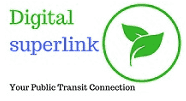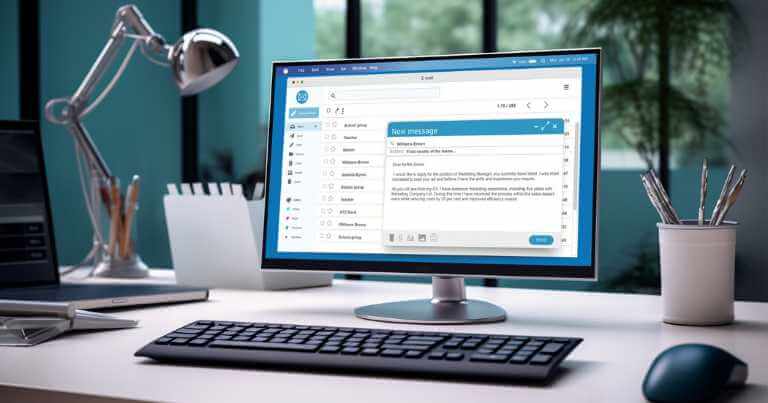Introduction to Notion
Using the help of the workspace app Notion, users may build calendars, wikis, documents, databases, the Kanban board boards, and more on a single, central platform. Lvan Zhao and Simon Last founded Notion in 2016 to create an adaptable, all-in-one productivity and project management software.
Following receiving $10 million in funding from investors such as Greylock Partners and First Round Capital, Notion made its public offering in 2018. Since then, Notion has raised an additional amount of money, totaling more than $70 million. As a result, the business has been able to hire over 100 people and add new services including mobile apps, offline access, and an API.
The “endless canvas” idea, which frees users from the restrictions of rigid document or spreadsheet formats, enables them to supply any kind of content they need. Every feature of Notion is housed in workspaces that clients may modify according to their needs. Whether it’s building a wiki, CRM, content calendar, or any other use case, Notion aims to provide users with all the tools they need to do any activity in one place.
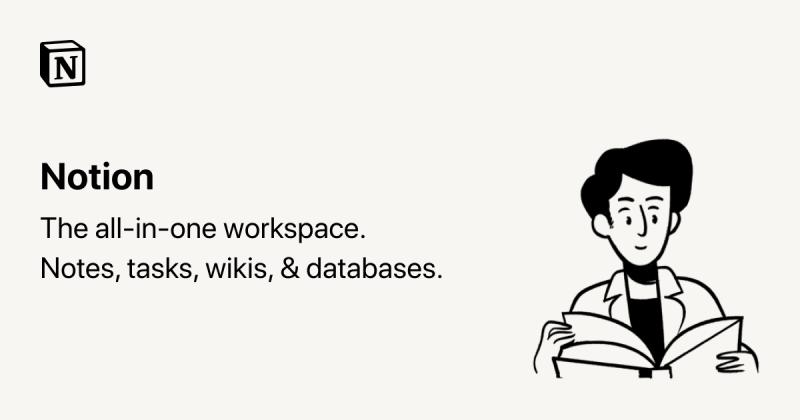
Notion for Beginners: To assist you in getting started with Notion, the Following Information is Provided:
1. Explore Templates: Notion templates free
Notion templates are offered by Notion for various use cases. Look through them to see how other people are using Notion for personal planning, project management, and note-taking.
2. Start with Simple Pages:
Start by making basic pages. To arrange material, you can include headers, bullet points, and text. Try out some simple formatting to get a feel for the editor.
3. Understand Blocks:
The basis of Notion is the idea of blocks. Every type of content is a block, including text, images, databases, and to-do lists. The secret to holding Notion is to comprehend how blocks function.
4. Mastering Databases:
Notion databases are effective tools for managing and organizing information. To improve workflow, learn how to create, modify, and link databases.
5. Use Toggle Lists:
To keep your sites tidy and well-organized, toggle lists are an excellent way to conceal and show content. They come in particularly handy for making portions that collapse.
6. Explore Integrations:
The notion is compatible with several services and apps. Investigate these connectors to link Notion with other products you use and increase productivity.
7. Keyboard Shortcuts:
To speed up your process, become familiar with Notion’s keyboard shortcuts. This can improve the effectiveness and enjoyment of your encounter.
8. Collaborate with Others:
The notion is excellent in teamwork. Try sharing websites and databases and discover how many people can collaborate in real time.
9. Visit Notion’s Help Center:
The Help Center provided by Notion is a useful tool. View the available documentation and tutorials if you have any questions or wish to experiment with the more complex capabilities.
10. Join Notion Communities:
Connect with the Notion user base. Join online networks, social media groups, or forums to exchange advice, pick up suggestions from others, and see what inventive ways people are using Notion.
Remember that Notion offers extensive customization options, so feel free to modify it to suit your needs and methods. You’ll figure out how to customize it to suit your needs as you grow more acquainted with its features.
“Notion Hub Streamline: Features of Notion”
The notion is meant to be a comprehensive platform for productivity and teamwork. It provides a range of tools to assist users in working together and organizing their work, including:
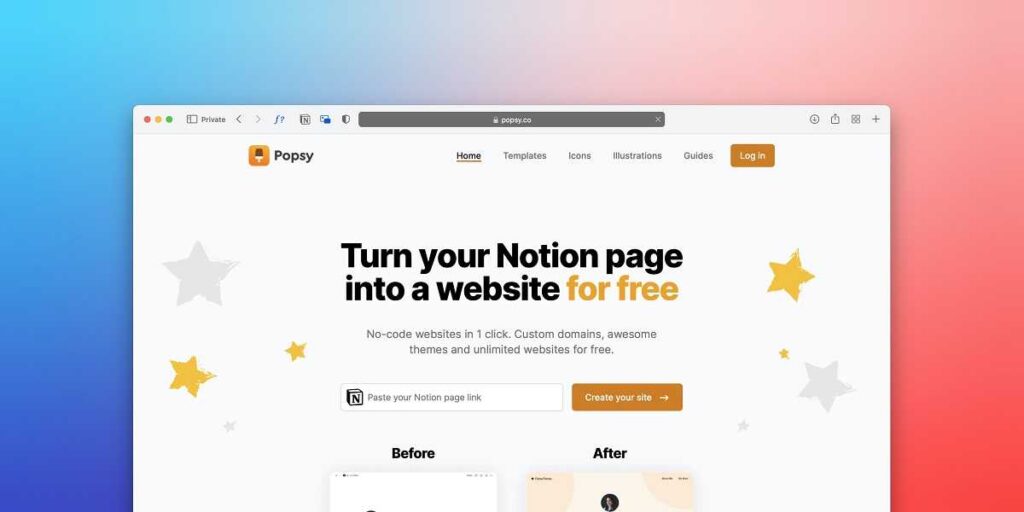
1000+ Notion Pages Free:
Notion employs pages as the fundamental content-building components. Text, pictures, checklists, code snippets, embeds, and more can all be found on pages. Pages for notes, documents, projects, and more can be made. Pages can be customized and are adaptable.
Notion Databases:
Users can make databases to manage lists, calendars, projects, and other information. You can analyze, filter, and arrange your stuff in various ways using databases. To connect relevant information, you can build linked databases.
Wikis
The notion can be used to arrange documentation and knowledge in a wiki-like format. Wikis make it simple to construct cross-links across content pages. This is great for managing private wikis for individuals or businesses.
Notion Documents
You may generate text documents for proposals, notes, reports, and more with Notion’s document support. Using documents makes it easy to format text with headers, bold, italics, links, and more.
Spreadsheets
The basic spreadsheet functions required to manage data tables are provided by Notion spreadsheets. Besides creating charts, formulas can also be utilized.
Kanban Boards
You can manage tasks and projects with visual Kanban boards. Workflows may be designed, jobs can be assigned, items can be moved between stages, and development can be tracked.
Calendar
The built-in calendar lets you schedule events, meetings, and deadlines. You can connect it to other calendars and share it for collaboration.
Use Cases
The notion is used in many different ways by individuals and teams. Here are some of the most popular use cases
Personal Productivity
Many people use Notion as a personal knowledge base and productivity system. Its flexible database structure allows you to produce customized systems for notes, tasks, goals, habits, and more. People use Notion to organize both their personal and professional lives.
Teams & Collaboration
The notion works well for teams that need to collaborate and share knowledge. You can produce platoon workspaces with shared databases, wikis, and documents. brigades use Notion to manage systems, track tasks, share calendars, onboard new workers, and much more. The permissions system lets you control access.
“Notion Hub Streamline: Project Management”
With database views, relational databases, and kanban boards, Notion is a surprisingly capable project management tool. Teams can track projects, assign tasks, manage deadlines, and stay on top of everything in one place. The flexibility allows you to customize it for any workflow.
Note Taking
Many students and professionals use Notion for taking notes in class and meetings. You can use it to take notes, highlight key ideas, and organize information. The notion makes it easy to interlink notes, add context, and quickly find information later. People love using Notion as a digital notebook.
Integrations
Notion offers seamless integration with many popular apps and services to help connect your workflows.
Google Drive
You can link Notion to your Google Drive account to easily import, embed, and manage Google Docs, Sheets, Slides, Forms, and more directly within your Notion workspace. Any changes made to linked files in Google Drive will automatically sync in Notion.
Dropbox
The Dropbox integration allows you to link files stored in Dropbox to Notion pages. You can embed Dropbox files like images, PDFs, and Office documents into your Notion notes. Files will stay in sync between Dropbox and Notion.
Slack
You may receive updates on-page changes, access Notion content directly from Slack, and more by connecting your Slack workplace to Notion. Notion pages can be automatically generated from Slack messages by configuring Slack bots. The integration of Notion with Slack facilitates efficient teamwork and communication.
GitHub
Notion interacts with GitHub repositories to allow users to track pull requests and problems, embed files, and monitor activity. With the integration, you may use Notion to view GitHub projects as a Kanban board. The notion may be utilized as a wiki for repositories hosted by GitHub as well.
Notion Templates Free
Notion’s collection of pre-built templates, which makes it simple to build a variety of documents and projects, is one of its most helpful features. Notion provides templates for nearly every possible use scenario.
There are templates for reading lists, trip schedules, habit trackers, personal wikis, and more that can be used for private use. Organizing your life and productivity is made easy with Notion’s templates—you don’t have to start from scratch.
Notion templates include templates for project trackers, client profiles, agendas for meetings, product roadmaps, and other standard business documents for usage in the workplace. With Notion templates, teams can quickly make use of all the collaboration and knowledge management capabilities they want.
Additionally, Notion provides specific templates for occupations such as authors, engineers, designers, and instructors. Some themes are ideal for managing editorial calendars, creating products, organizing classes, and much more.
A category of templates that is especially helpful is for different frameworks and approaches, such as getting things done, flexible, scrum, and kanban. These templates offer methodical approaches to putting organization systems into place.
It’s simple to locate a pre-built starting point that meets your specific requirements with Notion’s template collection. The templates are professionally designed and downloadable. Any template can be modified to exactly match your workflow, whether it be personal or professional.
Price
Notion provides a range of price tiers to accommodate various needs:
Free Plan
Rudimentary capabilities like limitless pages and blocks, easy collaboration, and rudimentary search are all included in the free plan. It works well for both individual use and straightforward teamwork. A few restrictions apply to the free plan: no guest contributors, a maximum of 1,000 blocks per page, and a 5MB file upload limit.
Personal Plan
The $4 per month cost of the personal plan is invoiced yearly. The block limit is lifted, allowing you to have an infinite number of blocks on every page. The maximum file size is now 50MB. Version history and priority email support are additional features. For those who require additional features, the personal plan is a good choice.
Team Plan
The Team plan costs 8 per user per month billed annually. It adds administrative tools like permissions, approvals, and advanced security. There are also team-oriented features like unlimited members, SSO, and advanced permissions. The file upload limit increases to 200 MB. The Team plan is ideal for small groups collaborating on projects.
Enterprise Plan
The Enterprise plan starts at a minimum of 20 users per month billed annually. It includes everything in the Team plus enterprise-level security, compliance, and administrative controls. Some features include HIPAA compliance, data residency, SLA-backed uptime, personal onboarding, and priority support. The Enterprise plan is suited for large organizations with advanced needs.
Pros of Notion
Notion offers several key benefits that make it a popular choice for teams and individuals looking for an all-in-one workspace.
Flexible and Customizable
One of Notion’s biggest strengths is its flexibility. It provides building blocks like databases, wikis, documents, and calendars that can be combined in endless ways to create customized workspaces. Whether you need a personal knowledge base, an online resume, a team wiki, or a company intranet, Notion allows you to build it your way. The drag-and-drop editor makes it easy to organize content exactly how you want.
Great for Collaboration
Notion facilitates seamless collaboration across teams and organizations. Multiple people can edit pages simultaneously, see each other’s cursors, and get notifications when content is changed. Pages support threaded comments for discussions. Members can be given customized access and permissions. Teams often use Notion as a central hub to manage projects, track tasks, share documents, and brainstorm ideas together.
Notion App Download
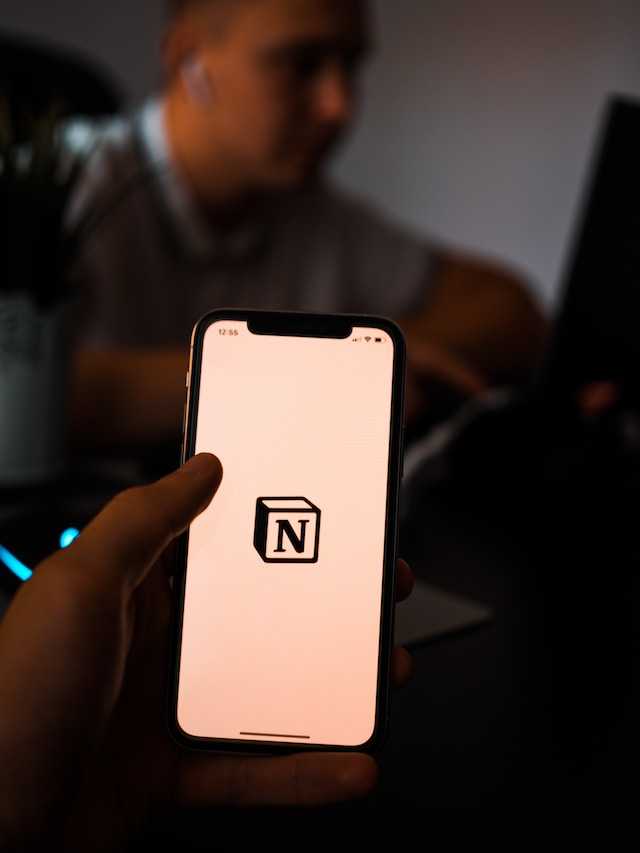
Notion offers mobile apps for iOS and Android so you can access your workspaces on the go. The apps provide core editing features so you can view and make quick updates to pages, add tasks, or jot down notes while away from your computer. The mobile experience makes Notion convenient for users who are frequently on the move.
Cons to Notion
Although Notion offers a flexible and helpful workspace, users should be aware of some drawbacks.
- ** Beginning with it could appear overwhelming** New users may find Notion’s wealth of features and customization possibilities to be overwhelming. Understanding how to organize your workspace optimally may take some time due to the learning curve of the interface. There are a lot of settings to adjust, which will take some initial time.
- ** Mobile limitations ** Although Notion has mobile apps, they are less feature-rich than their desktop counterparts. Structured tables and databases, for example, perform worse on mobile devices. For fast editing and content reading, mobile apps are ideal; desktop computers are better suited for complex duties.
- ** No offline access ** Notion requires an internet connection to use. There’s no true offline mode. This can limit use when you do not have a stable internet connection.
- ** Collaboration could be better ** Notion collaboration works decently, but still has some quirks. Co-editing can lead to conflicts, and notification comments do not work as smoothly as Google Docs. Real-time collaboration is limited. Overall, while Notion is very powerful, it does have a learning curve. It works best for users willing to invest time to understand the platform and who primarily need a desktop workspace. Those wanting absolute mobile access or real-time collaboration may find limitations. But for personal knowledge management and content creation, Notion shines.
Competitors
Notion competes with several other collaborative workspace tools. Here is an overview of its main competitors
Confluence
- Developed by Atlassian, focused on team collaboration
- Allows teams to create, organize, and discuss work together
- Has functionality like pages, blogs, wikis, templates
- Integrations with Jira, Trello, Slack, and more
- Can be self-hosted or used as cloud software
Quip
- Created by Salesforce, has documents and spreadsheets that focus
-Real-time chat and messaging abilities in documents - Team messaging boards, calendars, to-do lists
- Mobile optimization and apps available
- Integrates with Salesforce, Slack, Dropbox, and more
Coda
- Web-based, collaborative doc editor, focused on customization
- Allows teams to build custom apps, workflows, and automation within documents
- Has sections, tables, boards, calendars, chat
- Integrates with G Suite, Slack, Zapier, Zoom, and more
- Seen as a simple but powerful alternative to spreadsheets
Airtable
- Cloud-based database and spreadsheet tool
- Allows for visual organization of data into bases, tables, views
- Has automation features with triggers and scripts
- Integrates with hundreds of other apps via Zapier
- Used to organize, plan, collaborate, and analyze data
Conclusion
Wikis, papers, databases, calendars, and Kanban boards are just a few of the capabilities that Notion’s amazingly flexible workspace offers all on one platform.
It provides the freedom to create a variety of solutions for project management, teamwork, individual productivity, and other uses. Notion’s adaptability to practically every use case is what makes it so strong.
The relational features and database structure enable users to connect data in meaningful ways across their workspace. Notion’s ability to integrate with other technologies is further enhanced by templates and integrations.
Even though Notion still has certain restrictions on features like offline access and permissions, the platform is developing quickly. The notion is probably going to keep improving enterprise-focused features in its drive to become a team’s one-stop shop.
Even though Notion still has certain restrictions on features like offline access and permissions, the platform is developing quickly. The notion is probably going to keep improving enterprise-focused features in its quest to become a team’s one-stop shop.
In the future, more pre-built solutions catered to various team workflows, improved security, and tighter integrations are to be expected. The notion has the potential to lead the work tool industry going forward, having already made significant progress in a short period. For the time being, it offers a great linked workplace for anyone who wants to organize and gain insight into their teams, projects, and documents.
Notion Hub Streamline | Notion FAQs:
Q. What is Notion?
A. Notion is an all-in-one workspace that assists individuals and teams in organizing their work and ideas by combining note-taking, task management, and collaboration features.
Q. How can I get started with Notion?
A. Visit the Notion website and create an account to get started. Notion may be used via the web or by downloading desktop and mobile apps.
Q. Is Notion free to use?
A. Yes, Notion provides a free plan with limited functionality. For individuals and teams, premium plans are also available with additional features.
Q. What devices and platforms does Notion support?
A. Notion can be accessed on several operating systems, including web browsers, Windows, macOS, iOS, and Android. This provides smooth access to many devices.
Q. Can I collaborate with others on Notion?
A. Indeed, Notion is made to facilitate teamwork. Team members can be invited to collaborate in real time on documents, databases, and projects.
Q. How does Notion handle security and privacy?
A. Notion uses security to transmit data because it takes security seriously. For further security, users can also enable two-factor authentication. For more details, see the security documentation for Notion.
Q. What types of content can I create in Notion?
A. Several content types, such as notes, tasks, databases, calendars, and more, are supported by Notion. Because of its adaptability, users can design a workspace that is specific to their requirements.
Q. Can I use Notion for project management?
A. Yes, Notion is an effective project management tool. To manage projects and work with your team, you can make task lists, timelines, and Kanban boards.
Q. How can I organize my Notion workspace efficiently?
A. Through its pages, subpages, and databases, Notion provides an adaptable structure. To establish an organized and hierarchical workspace that complements your workflow, use headers, tags, and links.
Q. Is there offline access to Notion?
A. Yes, you can view your papers and notes offline using Notion. Having an internet connection, you can still work; when you do, the modifications will update.
Q. Can I integrate Notion with other apps?
A. Notion supports interfaces with well-known third-party applications, including Slack, Google Drive, and others. To link Notion with the tools of your choice, navigate to the settings and look for the integration area.
Q. How can I get support for Notion?
A. Notion assists its Help & Support center, which has tutorials, FAQs, and guides. Users can also contact Notion support if they need help.
Some Frequently Asked Questions regarding Notion are answered in these FAQs; However, the official Notion Documentation and Resources offer more in-depth information.
